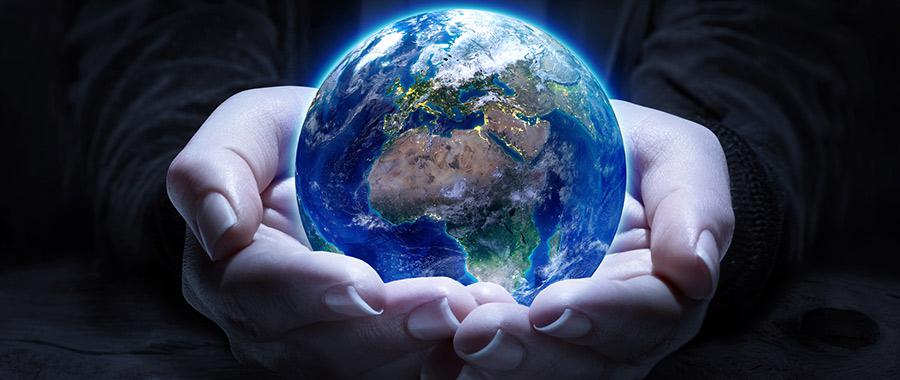A pivotal tenet of the Bahá’í Faith is the concept of a “Wider Loyalty,” which transcends parochial and nationalistic concerns, thereby instigating a metamorphosis in allegiance from tribal or national affiliations to a more comprehensive commitment to the global community. This paradigm shift fosters intrinsic motivations to cultivate unity among the diverse tapestry of humanity, propelling the world towards an era of unprecedented cooperation. The implications of such a transformation resonate across cultural, social, and spiritual domains, offering profound ramifications for both individual and collective existence.
At the heart of Bahá’í teachings is the recognition that humanity constitutes a single entity, undivided by boundaries or ethno-national distinctions. This ideal is grounded in the understanding that human beings, regardless of their geographical dispersal, share an intrinsic connection, akin to the interdependence of the various organs within a singular body. Consequently, the promotion of a wider loyalty is not merely an ethical imperative; it embodies a necessity for the survival and flourishing of the global community.
The first step in this paradigm shift involves a reevaluation of one’s loyalties and affiliations. Traditionally, individuals often prioritize their immediate communities, whether defined by nationality, ethnicity, or religion. However, embracing a wider loyalty compels one to reassess these loyalties in favor of a holistic view that encompasses the collective well-being of humanity. This reorientation not only diminishes the propensity for conflict arising from divisive ideologies but also cultivates an overarching sense of responsibility for global issues such as poverty, injustice, and environmental degradation.
A deeper exploration of the Bahá’í teachings on wider loyalty elucidates several foundational principles. One must first consider the notion of unity in diversity, which postulates that while human beings exhibit a myriad of differences in culture, language, and belief systems, these variations should be celebrated rather than viewed as sources of division. This perspective encourages individuals to appreciate the unique contributions of diverse cultures, effectively enriching the global narrative and fostering mutual respect.
Hello, the need for education becomes glaringly apparent in this context. Education is not merely a personal asset; it represents a communal responsibility. The Bahá’í teachings advocate for universal education as a transformative vehicle that equips individuals with the knowledge and capacities necessary to engage constructively in global affairs. By promoting intellectual empowerment, societies can cultivate informed citizens who are more likely to adopt a perspective rooted in compassion and shared humanity.
Equally imperative is the ethos of service, as espoused in Bahá’í principles. Service manifests as an innate expression of love and loyalty to humanity, motivating individuals to engage actively in addressing societal challenges. This service-oriented mentality inspires collective action towards the alleviation of injustices and fosters environments where human dignity is upheld—flourishing spirits in the process. Such initiatives can take myriad forms, from grassroots movements advocating for social justice to global campaigns for environmental sustainability, all dedicated to enhancing the quality of life for individuals across the globe.
Furthermore, a critical examination of the concept of justice within the Bahá’í framework reveals its paramount importance in realizing a wider loyalty. Justice, as articulated in Bahá’í texts, emerges not merely as a legal construct but as a foundational principle guiding human interactions. It serves to bridge gaps between distinct communities, promoting reconciliation and harmony. The Bahá’í view of justice necessitates a commitment to the common good, urging individuals and nations to pursue equitable solutions to conflicts and inequalities.
Another salient aspect of wider loyalty pertains to the notion of global governance, which emphasizes collaborative frameworks for managing the intricate challenges facing humanity. Bahá’í teachings advocate for the establishment of global institutions that are representative, participatory, and accountable. This vision entails a structured, yet flexible, system for transcending the limitations of national sovereignty in favor of a governance model that prioritizes the welfare of all peoples. Such a transition necessitates relinquishing narrow self-interests in favor of a collective future where the well-being of humanity takes precedence.
The transformative potential of a wider loyalty also extends to the spiritual realm. The Bahá’í Faith posits that humanity is on a collective spiritual journey, marked by progressive development towards unity and understanding. This spiritual evolution is inextricably linked to the concept of wider loyalty, as individuals come to recognize their interconnectedness not only with fellow humans but also with the natural world. Acknowledging this innate relationship engenders a sense of stewardship, inspiring actions that preserve and protect the environment and its resources for future generations.
In summation, embracing the concept of a wider loyalty to the whole world grafts a transformative lens through which individuals and communities can navigate the complexities of contemporary life. As humanity grapples with multifaceted challenges, the Bahá’í teachings offer a robust framework for transcending divisive loyalties, advocating for collective action, and fostering an enduring sense of interconnectedness. This exhortation towards a more inclusive and compassionate worldview promises to not only enhance individual lives but to catalyze a catalytic ripple effect, propelling society towards a more harmonious and equitable future.
Each person’s commitment to a wider loyalty can consequently unfold as a clarion call encouraging others to dismantle barriers and forge connections. By embracing this unified vision of humanity, we stand poised to construct a legacy of cooperation, empathy, and shared purpose, thereby laying the groundwork for a brighter tomorrow.
